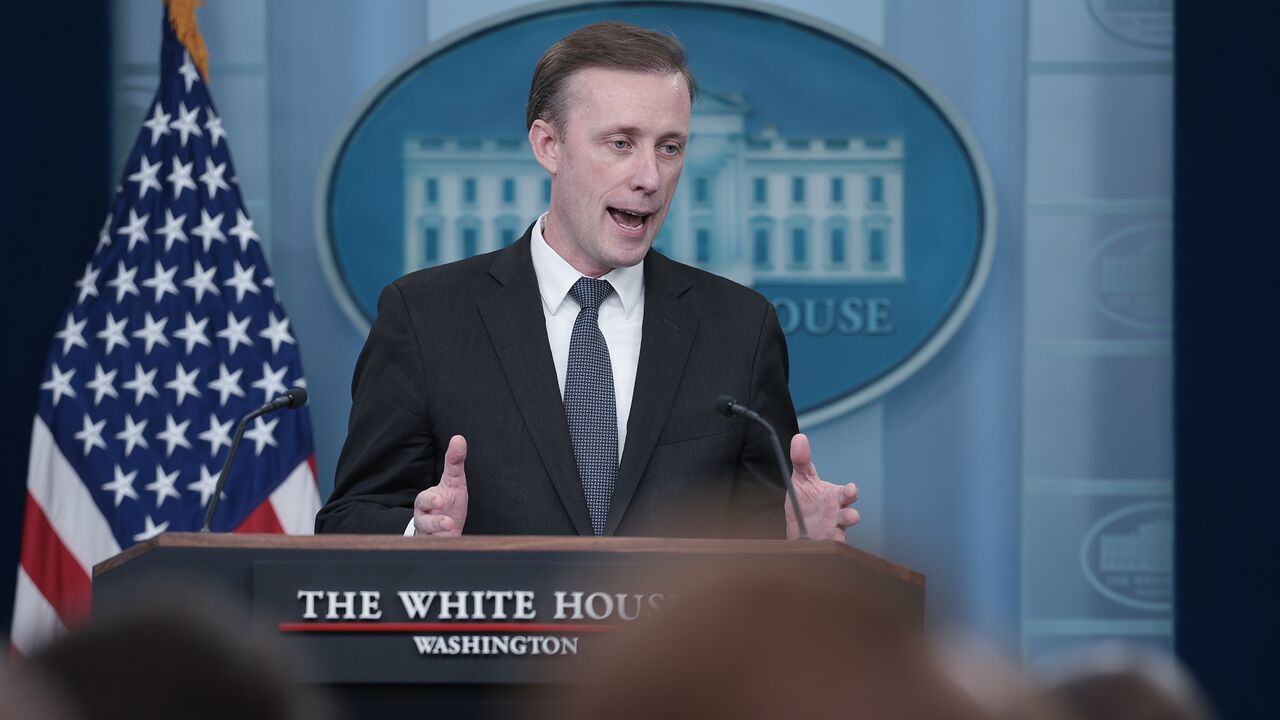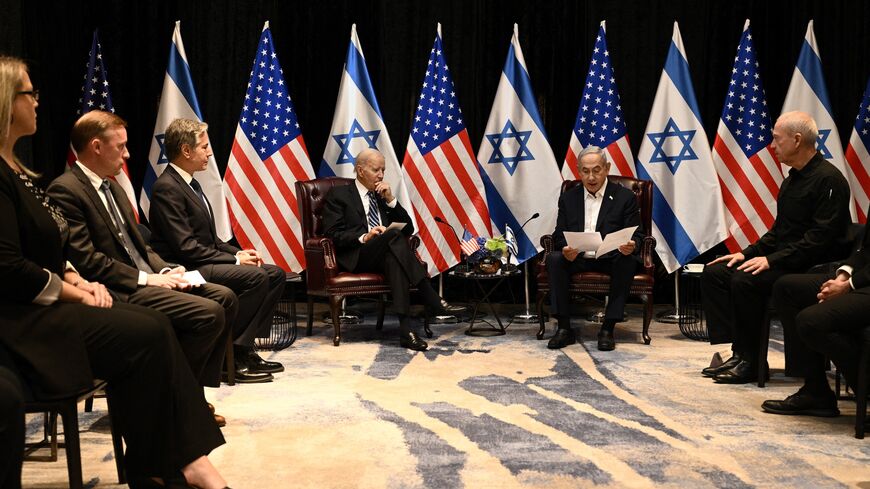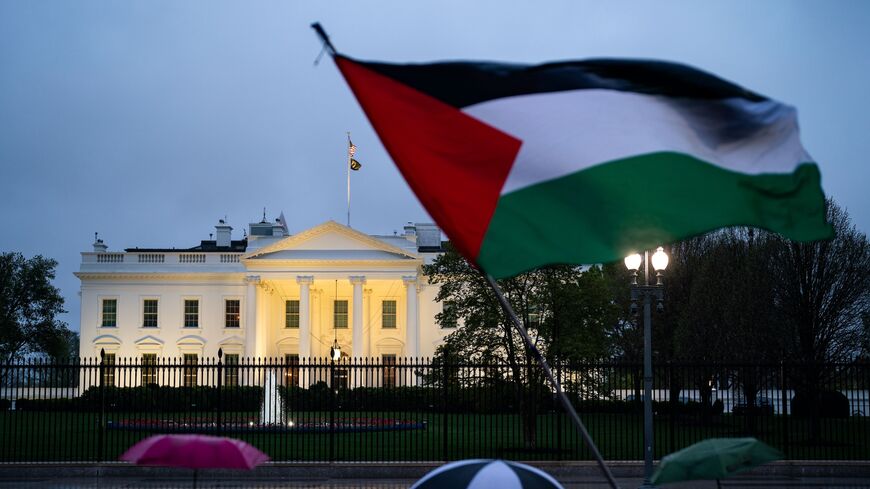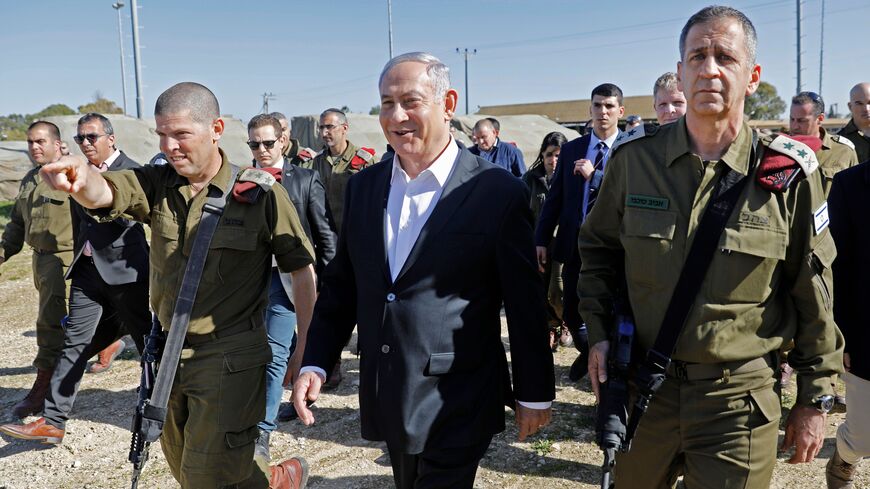Top Israeli officials meet with Biden’s national security adviser
After months of delay, two of Netanyahu's top advisers have finally made their way to the White House.

WASHINGTON — A long-postponed delegation to Washington led by two of Israeli Prime Minister Benjamin Netanyahu’s top advisers kicked off on Thursday, as the Biden administration seeks to avert a war between Israel and Hezbollah and as Iran continues to expand its stockpiles of enriched uranium, stoking fears of potential weaponization.
Israel’s national security adviser, Tzachi Hanegbi, and Strategic Affairs Minister Ron Dermer met with US national security adviser Jake Sullivan at the White House on Thursday after months of delay.
President Joe Biden initially invited the delegation led by Hanegbi and Dermer to the White House back in March in a bid to convince the Israeli leaders not to launch a full-blown conventional military invasion of Rafah, the densely populated enclave on Gaza’s southern border with Egypt.
Their trip was at least twice delayed, first by Netanyahu himself and later by a massive Iranian counterattack against Israel involving more than 300 drones and ballistic and cruise missiles in mid-April in response to Israeli airstrikes that killed six IRGC officials at Iran's consulate in Damascus.
Axios reported on Wednesday that the White House had cancelled high-level meetings involving State Department and Pentagon officials to discuss Iran with Dermer and Hanegbi. Those plans were reportedly cancelled in retaliation for a video Netanyahu released in which the Israeli prime minister slammed the Biden administration for allegedly holding up arms transfers to Israel.
But White House officials confirmed on Thursday morning that Sullivan's meeting with Dermer and Hanegbi indeed set to take place.
"No other country is doing more to help Israel defend itself against the threat by Hamas — and, quite frankly, other threats that they're facing in the region — than the United States," National Security Council spokesperson John Kirby told reporters in response to Netanyahu's criticism.
"The idea that we had somehow stopped helping Israel with their self-defense needs is actually just not accurate,” Kirby said.
Earlier this week, the Washington Post reported that the top two Democrats on the House Foreign Affairs and Senate Foreign Relations Committees had relented in their opposition to a planned $18 billion arms sale to Israel set to include some 50 F-15s fighter aircraft. Sen. Ben Cardin (D-Md.) and Rep. Gregory Meeks (D-NY) both acquiesced to the sale last week in response to pressure from Biden administration officials.
“On the F-15s, the only other thing I’d add is that these would be slated to be delivered in, like, 2029, if they’re approved,” Kirby said on Thursday. “And that approval process is ongoing. [It is] not related at all to the current conflict,” he added.
The meetings also come as Israeli officials aim to coordinate with US leaders on contingency plans in case Iran should pursue a nuclear weapon. US intelligence assesses Iran’s supreme leader, Ali Khamenei, has not issued any policy decision to obtain a nuclear weapon.
But Iran’s government has continued to enrich uranium at varying speeds since the United States unilaterally withdrew from the 2015 multinational nuclear accord with Tehran. The deal, known formally as the Joint Comprehensive Plan of Action, or JCPOA, was abandoned by then-President Donald Trump in 2018.
The International Atomic Energy Agency (IAEA), the UN’s watchdog agency on nuclear energy, reported last week that Iran planned to install additional advanced centrifuges in response to recent censure for its nuclear advances.








